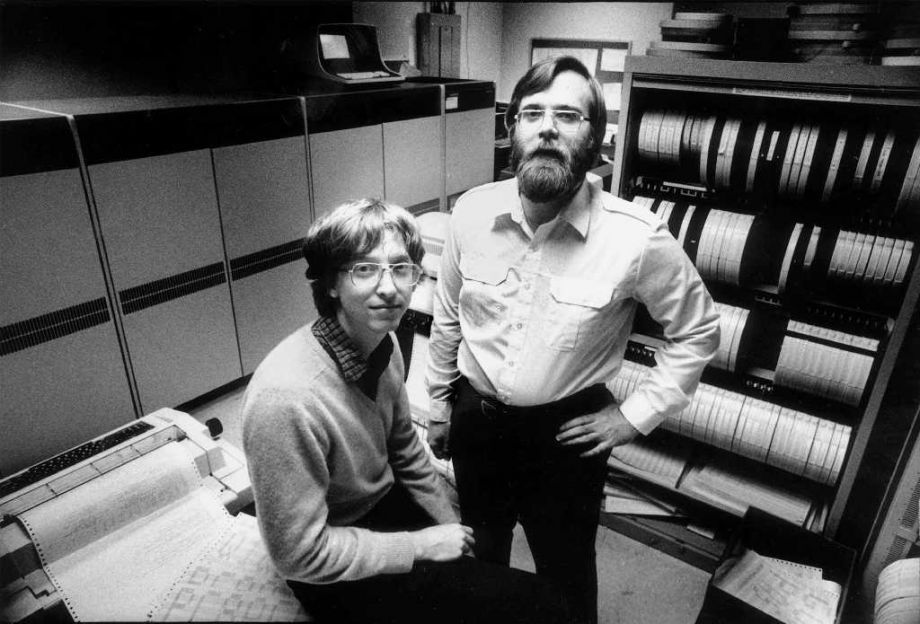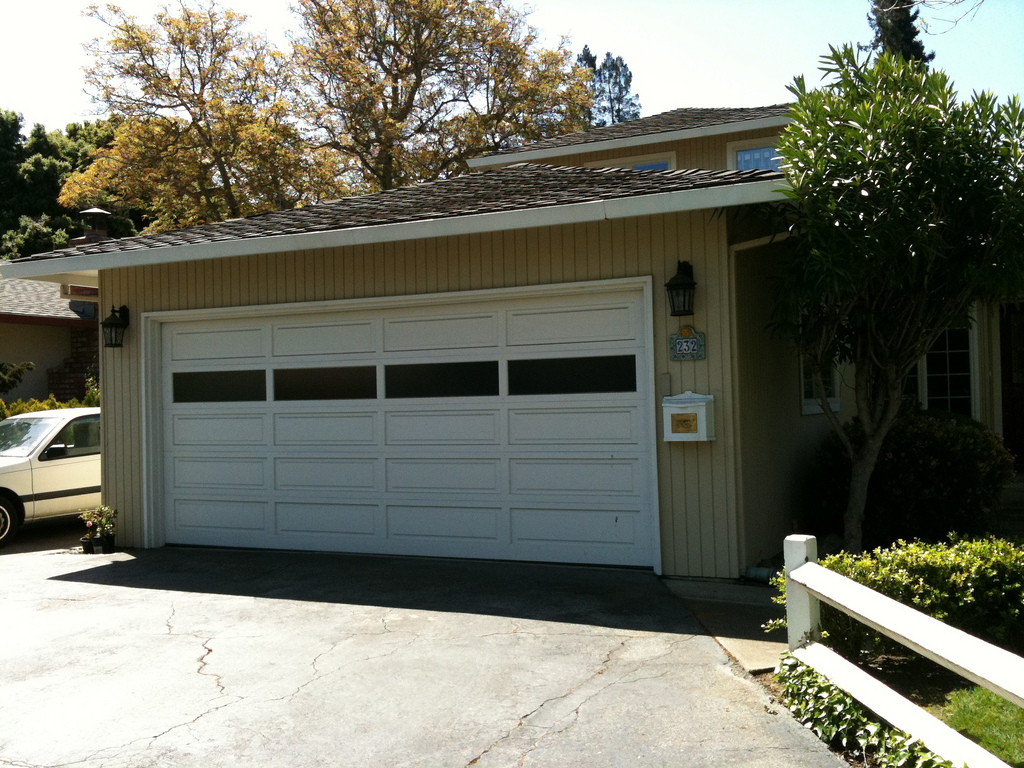What Are Garage Startups?
Garage startups are technology companies that began operations in unconventional spaces like residential garages, college dorm rooms, or home offices. These humble beginnings have produced some of the world’s most valuable companies, proving that innovation doesn’t require expensive facilities or massive initial investments.
Top Famous Garage Startups That Became Tech Giants
Here are the most well-lnown companies that came from garages.
Microsoft (1975) – $2.8 Trillion Company

Founders: Bill Gates, Paul Allen
Started: Garage in Albuquerque, New Mexico
Original Focus: BASIC programming language for personal computers
Current Status: Global software giant dominating operating systems and cloud computing
Apple (1976) – $3 Trillion Company

Founders: Steve Jobs, Steve Wozniak, Ronald Wayne
Started: Jobs’ parents’ garage in Cupertino, California
Original Focus: Building the Apple I personal computer
Current Status: World’s most valuable company, revolutionizing smartphones, computers, and digital entertainment
Google (1998) – $1.7 Trillion Company

Founders: Larry Page, Sergey Brin
Started: Menlo Park garage
Original Focus: Revolutionary search engine algorithms
Current Status: Dominant search engine and AI technology leader
Amazon (1994) – $1.5 Trillion Company

Founder: Jeff Bezos
Started: Home garage in Seattle, Washington
Original Focus: Online bookstore
Current Status: World’s largest e-commerce platform and cloud services provider
Facebook (2004) – $800 Billion Company
Founder: Mark Zuckerberg (with Harvard roommates)
Started: Harvard dorm room
Original Focus: Social networking platform for college students
Current Status: Meta – global social media and metaverse technology leader
Hewlett-Packard (1939) – $28 Billion Company

Founders: Bill Hewlett, Dave Packard
Started: Palo Alto garage (birthplace of Silicon Valley)
Original Focus: Audio oscillators and electronic instruments
Current Status: Major IT hardware and services company
Dell Technologies (1984) – $55 Billion Company
Founder: Michael Dell
Started: University of Texas dorm room
Original Focus: Custom-built personal computers sold direct to consumers
Current Status: Leading PC manufacturer and enterprise technology solutions provider
Why Do Garage Startups Succeed? 5 Key Factors
1. Low Overhead Costs
Starting in a garage eliminates expensive office rent, allowing founders to invest more in product development and innovation.
2. Agile Development Culture
Small teams can pivot quickly, test ideas rapidly, and implement changes without corporate bureaucracy.
3. Direct Problem-Solving Focus
Garage startups often emerge from founders solving personal problems, creating products with genuine market need.
4. Passion-Driven Teams
Early employees join for vision and equity rather than salaries, creating highly motivated teams focused on long-term success.
5. Innovative Thinking
Limited resources force creative solutions, often leading to breakthrough innovations that established companies miss.
The Garage Startup Success Timeline
Years 1-2: Prototype development, initial funding from friends and family
Years 3-5: Product launch, early customer acquisition, seed funding
Years 5-10: Market expansion, venture capital, scaling operations
Years 10+: IPO, global expansion, industry leadership
Modern Garage Startup Opportunities in 2025
Today’s garage entrepreneurs have advantages previous generations didn’t:
- Cloud Computing: Eliminates need for expensive servers
- Open Source Software: Free access to powerful development tools
- Digital Marketing: Cost-effective customer acquisition
- Remote Work Tools: Access to global talent pool
- AI and Automation: Enhanced productivity and capabilities
Emerging Sectors for New Garage Startups:
- Artificial Intelligence and Machine Learning
- Sustainable Technology and Clean Energy
- Virtual and Augmented Reality
- Biotechnology and Health Tech
- Blockchain and Cryptocurrency
- Gaming and Interactive Entertainment
The gaming industry, particularly, continues to see innovative startups emerging from small spaces. Social platforms like Facebook revolutionized how we connect and play, with classic Facebook games creating communities of millions of players who shared experiences across simple browser-based entertainment. Today’s gaming landscape has evolved into sophisticated platforms offering everything from Boku casino gaming to avalanche slots with innovative mechanics.
Modern gaming platforms showcase diverse offerings, from Blueprint Gaming slots to Australian online pokies, while established providers like IGT continue evolving their gaming portfolios. The collectible gaming culture has also exploded, with rare Pokémon cards reaching astronomical values that rival traditional investment assets.
Beyond gaming mechanics, the visual design evolution in digital entertainment reflects broader creative trends, with modern cartoon styles influencing everything from game characters to user interface design.
Lessons from Garage Startup Success Stories
1. Start Small, Think Big
Every tech giant began with a simple idea executed in a confined space. The key is maintaining ambitious vision while starting with minimal viable products.
2. Embrace Constraints as Catalysts
Limited budgets and space force creative problem-solving that often leads to more elegant, user-friendly solutions.
3. Focus on User Experience
Successful garage startups prioritize solving real user problems rather than building impressive technology for its own sake.
4. Build Strong Partnerships
Many successful startups began with complementary co-founders who brought different skills to the venture.
5. Persist Through Challenges
Every major tech company faced near-failure moments. Success often comes to those who persist through early difficulties.
The Future of Garage Innovation
The garage startup model continues evolving. Modern entrepreneurs leverage:
- Advanced Development Tools: Sophisticated software development platforms
- Global Connectivity: Instant access to worldwide markets and talent
- Specialized Services: Professional development companies that help startups focus on innovation rather than technical implementation
- Investment Networks: More accessible funding through angel investors and crowdfunding
| Company Name | Founders | Founded In | Original Garage Focus | Current Status |
|---|---|---|---|---|
| Apple | Steve Jobs, Steve Wozniak | 1976 | Building personal computers (Apple I) | Tech giant (iPhone, Mac, etc.) |
| Amazon | Jeff Bezos | 1994 | Online bookstore | World’s largest online retailer |
| Larry Page, Sergey Brin | 1998 | Search engine prototype | Dominant search & tech company | |
| Hewlett-Packard | Bill Hewlett, Dave Packard | 1939 | Audio oscillators | Major IT hardware & services company |
| Microsoft | Bill Gates, Paul Allen | 1975 | Programming language interpreters (Altair BASIC) | Global software powerhouse |
| Disney | Walt Disney, Roy O. Disney | 1923 | Animation studio (Alice Comedies) | Entertainment empire |
| Harley-Davidson | William S. Harley, Arthur Davidson | 1903 | Building motorcycles | Iconic motorcycle manufacturer |
| Dell Technologies | Michael Dell | 1984 | Assembling PCs for students | Leading PC & tech company |
| Nike | Phil Knight, Bill Bowerman | 1964 (as Blue Ribbon Sports) | Selling running shoes from a car trunk | Top global sportswear brand |
| Mattel | Harold Matson, Elliot Handler | 1945 | Picture frame making (later toys) | Global toy manufacturer (Barbie, Hot Wheels) |
| Lotus Cars | Colin Chapman | 1948 | Building race cars in a garage | Famous British sports car brand |
| Yankee Candle | Michael Kittredge | 1969 | Homemade candles as gifts | Leading candle brand |
| Maglite | Anthony Maglica | 1955 | Precision parts manufacturing | Premium flashlight company |
| Patagonia | Yvon Chouinard | 1973 | Hand-forged climbing gear | Iconic outdoor clothing brand |
| The Body Shop | Anita Roddick | 1976 | Homemade natural beauty products | Major global cosmetics retailer |
| Infosys | Narayana Murthy & others | 1981 | IT consulting from home | One of India’s largest IT firms |
| Bohemian Guitars | Adam & Shaun Lee | 2012 | Handcrafted guitars from oil cans | Boutique musical instrument brand |
| Spanx | Sara Blakely | 2000 | Shapewear prototype in her apartment | Billion-dollar fashion company |
| Disney | Walt Disney, Roy Disney | 1923 | Producing short animated films | Largest entertainment company globally |
| Clif Bar | Gary Erickson | 1992 | Homemade energy bars | Popular health food company |
Key Takeaways
- Location Doesn’t Determine Success: Innovation can happen anywhere with the right mindset and determination
- Resource Constraints Spark Creativity: Limited budgets often lead to more innovative solutions
- Timing and Persistence Matter: Many successful companies weren’t first to market but executed better
- Technology Democratizes Opportunity: Modern tools make it easier than ever to start a tech company
- Vision Trumps Resources: Big ideas with passionate execution can overcome financial limitations
The legacy of garage startups proves that the next world-changing technology company could be starting today in someone’s spare room, garage, or dorm. With determination, innovation, and the right approach, today’s small beginnings could become tomorrow’s tech empire. Services like eJaw software development company even offer to handle building new applications so founders can focus on their ideas rather than technical implementation.








